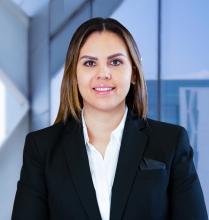Mexico: The rules of operation of the Technical Committee of the National Energy Commission are published
This new regulatory framework seeks to provide clarity and transparency to the integration, functioning and operation of the CNE's Technical Committee, as well as to regulate the performance of its members in the course of its sessions.
On June 24, 2025, the Ministry of Energy (SENER) published in the Official Gazette of the Federation (DOF) Resolution CT/1.SE/2-2025, which approves the rules of operation of the Committee, as the collegiate body that the CNE has for the better performance of its functions and to add transparency to the granting of permits and the issuance of the regulation of the activities within its competence.
Integration, sessions and voting
According to the rules and article 18 of the CNE Law, the Committee is integrated according to the following structure:
I. With speaking and voting rights, the persons in charge of:
- The SENER, who will also chair it and will have the tie-breaking vote.
- The Undersecretary of Electricity of the SENER.
- The Undersecretary of Hydrocarbons of the SENER.
- The Electricity Unit of the CNE.
- The Hydrocarbons Unit of the CNE.
- Three technical experts of the energy sector appointed by the head of the Federal Executive.
II. As permanent guests, with speaking rights but without a vote, the persons in charge of:
- The General Directorate of the CNE.
- The Undersecretary of Energy Planning and Transition of the SENER.
- The Internal Control Office of the CNE.
III. The head of the Technical Secretariat (proposed by the Chair and appointed by the Committee), with speaking rights but no vote.
The Committee may hold ordinary and extraordinary sessions, which may take place in person, in hybrid format or remotely. Ordinary sessions must be held at least once a month and the members must be notified at least five working days in advance. In case of urgency or due to the importance of the matter, extraordinary sessions may be called at least two working days in advance.
In order for the Committee to validly meet, in-person or remote attendance of at least five of its members is required, provided that at least one technical expert attends in person. The head of SENER may, in case of absence, designate another official to replace her. The other members, except for the technical experts, may designate alternates, who will be the officials with the next lower hierarchical level.
Likewise, the decisions of the Committee must be adopted by majority vote, with no possibility of abstention, unless there is an excuse qualified by the Committee in terms of the CNE Law and its internal regulations. In the event of a tie, the Chair of the Committee shall cast the tie-breaking vote. All members of the Committee must vote in the affirmative or negative. In the negative case, they shall state their reasons at the corresponding session.
For the purposes of voting on matters, the grouping of issues pertaining to a market or regulated activity may be considered.
Attributions
The rules establish that, in addition to the provisions of article 17 of the CNE Law, the Committee shall have the following attributions:
- Review, issue opinions, analyze, assess, evaluate, rule and approve the legal or administrative acts issued by the CNE within the scope of its competence, with the exception of the acts that correspond to the General Directorate of the CNE and its administrative units, within the scope of their powers.
- Instruct the head of the General Directorate of the CNE, the Technical Secretariat of the Committee and the administrative units to issue and execute the resolutions, agreements and other acts it approves.
- Instruct the head of the General Directorate of the CNE to formalize the permits, authorizations and other administrative acts it approves.
- Any other powers conferred by the CNE Law and other applicable legal provisions, as well as those delegated to it by the SENER.
The rules became effective on the day of their publication in the DOF.
Contacts

-
+52 55 5029 8500

-
+52 55 5029 8500

-
+52 55 5029 8500

-
+52 55 5029 8500
